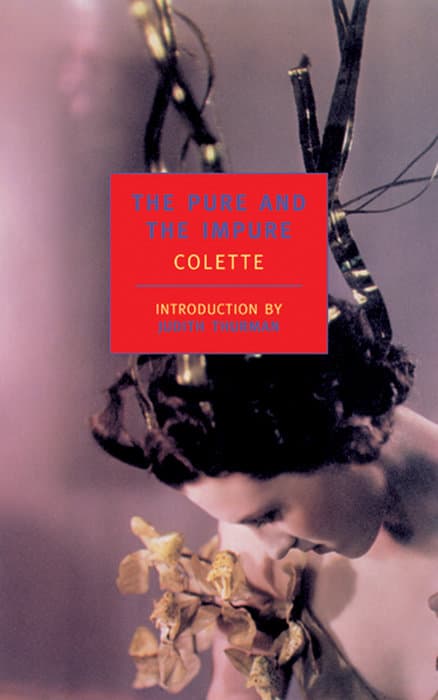
Book Review Summary: The Pure and the Impure
Introduction
"The Pure and the Impure" by Colette is a captivating exploration of the erotic world and the complexities of human relationships. Colette, the author, delves into the lives of individuals whose desires have been transfigured by the power of love and desire. With its lucid and lyrical prose, this book stands out as one of modern literature's most subtle reckonings, not only with sexual experiences but also with the nature of love itself. In this article, we will delve into the author's background, analyze the book's common opinions, and discuss the reasons for both recommendations and not recommendations.
About Colette
Colette, the pseudonym for Sidonie-Gabrielle Colette, was a French novelist and actress known for her influential "Claudine" novels and the novella "Gigi." She started her writing career in the early 20th century and is considered one of France's most significant literary figures. Colette's works often reflect her personal experiences and explore themes of love, desire, and sexuality. "The Pure and the Impure" is considered one of her most personal works, offering a guided tour of her own erotic experiences.
Analysis of Views
-
Breaking New Ground: Readers praise "The Pure and the Impure" for its groundbreaking approach to discussing non-heterosexual sex. Although Colette was married multiple times, she was not shy about exploring other forms of gratified desire. Despite the limitations imposed by societal norms at the time, Colette's writing on sexuality was revolutionary and still resonates today.
-
Subjectivity and Subjectivity: Colette's writing on sexuality foregrounds subjectivity, rejecting traditional structures and embracing individual experiences. Readers appreciate her emphasis on the complexity of human emotions and her rejection of rigid structures in relationships. This approach adds depth to the narrative and allows readers to reflect on their own experiences.
-
Engaging Prose: Many readers find Colette's writing style engaging and enjoyable to read. Her use of language is praised for its clarity and poetic quality, making it easy to immerse oneself in the story. The book's exploration of various forms of desire and relationships is enhanced by her captivating prose.
-
Challenging Themes: While some readers appreciate the book's exploration of taboo subjects, others find it challenging due to its meandering plot structure or stereotypical portrayals. Some feel that Colette's views on certain groups, such as lesbians, are problematic or offensive. These aspects may detract from the overall enjoyment of the book for certain readers.
Reasons for Recommendation
-
Subtle Reckoning: Readers recommend "The Pure and the Impure" for its subtle exploration of sexual experiences and the nature of love. Colette's ability to capture the complexities of human relationships and emotions resonates with readers, making it a thought-provoking read.
-
Breaking Barriers: The book's groundbreaking approach to discussing non-heterosexual sex and its impact on individuals makes it a valuable addition to any reader's collection. It challenges traditional narratives and offers a fresh perspective on sexuality, making it a recommended read for those interested in exploring taboo subjects.
-
Engaging Prose: Colette's engaging writing style makes "The Pure and the Impure" an enjoyable read for many readers. Her use of language adds depth to the narrative, making it easy to immerse oneself in the story and appreciate the exploration of various forms of desire and relationships.
Reasons for Not Recommendation
-
Plot Structure: Some readers find the book's meandering plot structure challenging, as it lacks a clear narrative arc or direction. This can make it difficult to follow at times, particularly for those seeking a more straightforward reading experience.
-
Stereotypical Portrayals: Some readers feel that Colette's portrayal of certain groups, such as lesbians, is stereotypical or offensive. These portrayals may detract from the overall enjoyment of the book for readers who value diverse representation and inclusive storytelling.
Conclusion
"The Pure and the Impure" by Colette is a thought-provoking exploration of sexuality, desire, and love that challenges traditional narratives and offers a fresh perspective on human relationships. While some readers appreciate its groundbreaking approach to discussing non-heterosexual sex and engaging prose, others find it challenging due to its meandering plot structure or problematic portrayals of certain groups. Ultimately, whether or not one recommends this book depends on individual preferences and values regarding representation and storytelling. However, those seeking a subtle reckoning with sexual experiences and a nuanced exploration of human emotions may find "The Pure and the Impure" to be a rewarding read.